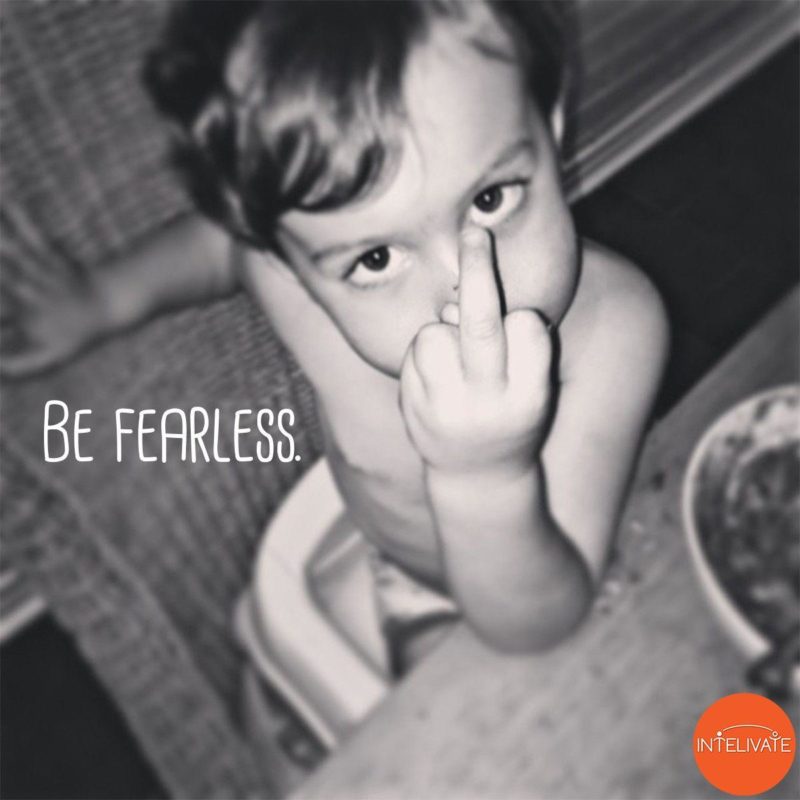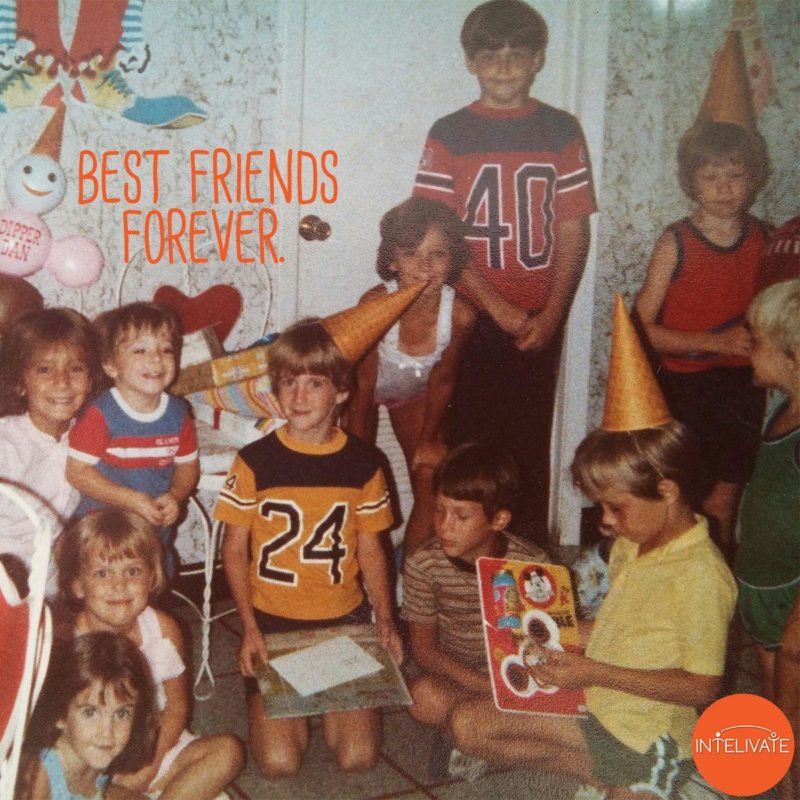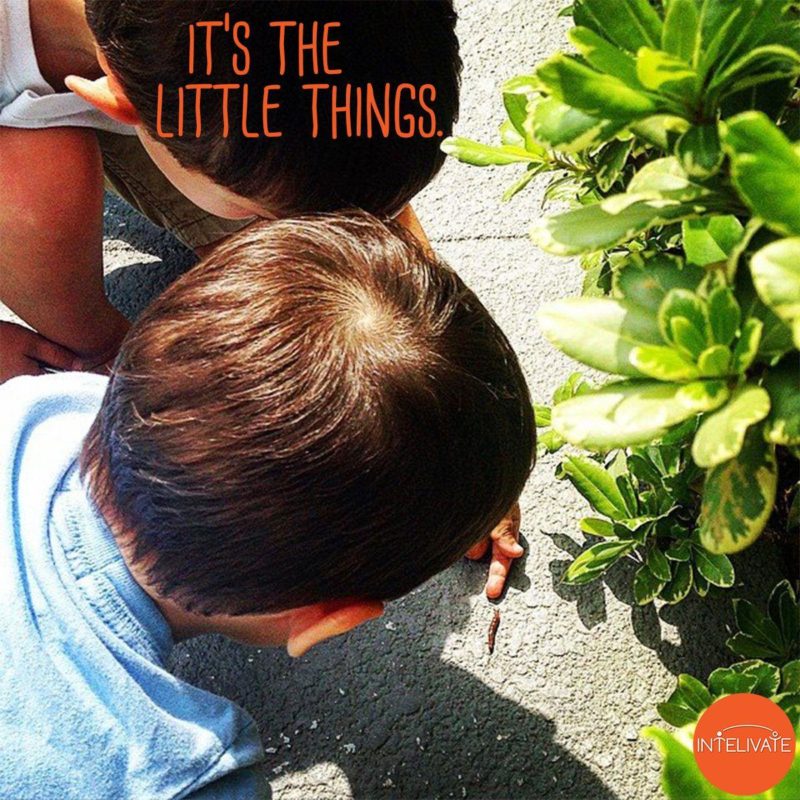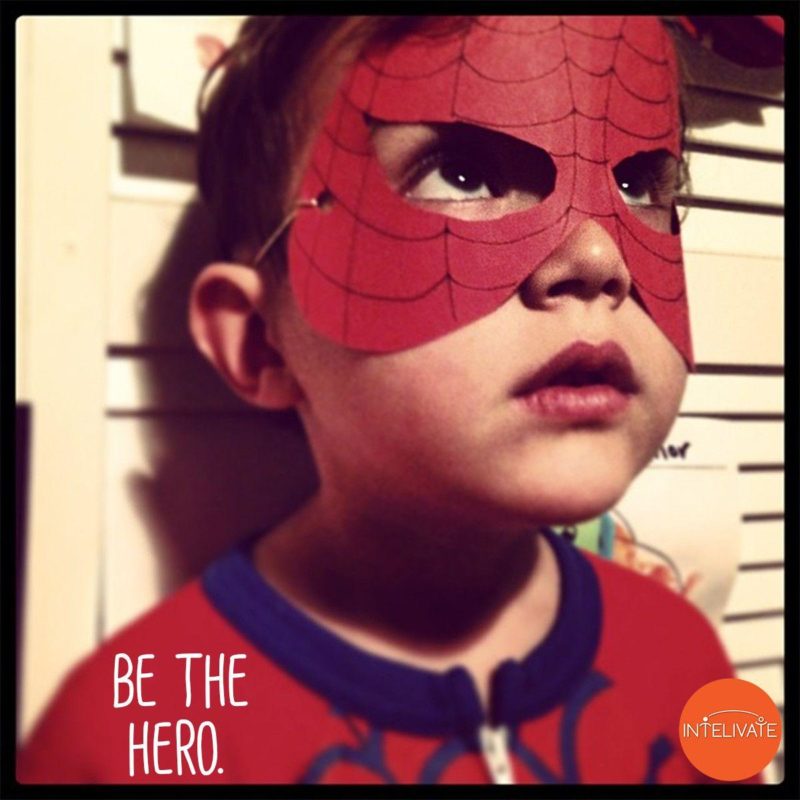Ditch the seminar and learn from a child’s innocent and uninhibited approach to leading and living by following these 10 steps for effective leadership.
Sometimes, just sometimes, we all need a reminder to look for inspiration and wonder in this beautiful thing we call ‘life’ – even as it relates to process, leadership and Intelivate, accompanied by our personal photos (yes, the pictures are of Intelivate past, present, and future) – and Jocelyn Kelley helped nudge us to revisit those wonder years of past with her article, “10 Life Lessons You Can Learn From Children.”
As is expected and often inevitable, adulthood replaces the fervor and wonder with which we once lived as children with rigid constructs and hardened hearts. There is much to gain if we take the time to view life through the rose-colored lens of childhood.
And while we can’t spend our adult days skipping to-and-fro – which incidentally, if you haven’t tried skipping lately, it’s certainly worth revisiting, if for nothing more than to have a good laugh (see: Item #4) – we can take stock in and learn from a child’s blissfully innocent and uninhibited approach to living by considering these 10 steps.
1. Every Day is a Fresh, Clean Slate.
Every ‘tomorrow’ is essentially a new day, free of mistakes and failures. What an incredibly liberating thought.
Remember as a child how long the days felt, with plenty of time to explore new opportunities, make new friends, go on adventures and learn new things?
Effective leadership requires you to leave your baggage at 11:59 p.m. as it will not make your connecting flight to tomorrow.
2. Effective Leadership Requires Creativity for Your Mind – and Heart
Like the aforementioned rigid constructs of adulthood, we often abandon creative pursuit – especially as professional leaders or organizations as a whole – either for lack of time or due to the realization that your masterpiece looks nothing like that bowl of fruit.
Children, however, see what their mind’s eye wants them to see, so they lose themselves in coloring, finger paint, clay or sand castles, creating priceless works of art that absolutely must receive prime refrigerator real estate.
This is how they continue to learn, grow and invent. Effective leadership requires you to pull yourself back to that time and lose yourself in something you love.
You’ll thank a child for it.

3. Be Fearless.
Skip. Dance. Sing loudly – and badly.
Children know little about humiliation or failure, so they cartwheel their way through life with joy and determination not knowing any better – or worse.
And as happier, innocent people, they tend to trust more openly, allowing them to be liked and accepted by others, and be more ethical than distrusting people.
Because they are amenable and adaptable, children inherently learn to surf the waves of life, rather than go against them.
4. Laugh.
With all the joy children find, it’s no wonder that they see the silly and humorous in what would be considered uninteresting or mundane from our vantage point.
It’s all so new, exciting and wondrous.
Studies have found that the average child laughs roughly 200 times a day while the average adult laughs 14-17 times a day.
Those statistics alone are enough to make you cry. But if children have taught us anything thus far, a good (read: bad) knock-knock joke can cure all.
Even in the bad times, effective leadership requires that you find a reason to laugh. It might be a lot of work at the time. It is worth it.
5. Remember the Little Things.
Again, it’s all about joys and wonders to achieve effective leadership. Are you sensing a pattern?
Regardless that we’ve seen them 12 times already today, my two young sons absolutely must stop to kneel down next to every.single.slug on the walkway to our front door. It matters not that our walkway is Grand Central Station for slugs, or that the slugs don’t do anything.
They’re slugs, and evidently, they’re fascinating.
It’s that – wait for it – wonder that makes children curious and always eager to learn, discover or explore something new.
Constantly wondering, learning and exploring builds effective leadership.
6. Get Moving.
Remember how recess was the highlight of any day? Running around, somehow tirelessly, sweating, face flushed and laughing. You would join a pick-up game of anything, invent new games about nothing, somersault, and repeat?
It was never ‘exercise’ so it wasn’t a chore, it was just playing. And it was fun.
Maybe instead of going to the gym or for a run, you can start an impromptu game of tag, perhaps best after all parties have consented, provided a doctor’s note and readied an inhaler.
7. Scars are Cool.
While breaking a bone or spraining an ankle was never fun, it did mean you’d get a cast that all your friends could sign and earn you priceless street cred.
You were a survivor, after all, and therefore, a pseudo-celebrity.
You’d peel back Band-aids to show off scabs and blood because it was a badge of honor, and you were proud.
But adulthood has few Band-aids and many emotional scars, which we make haste to hide, fearful of showing weakness – especially professionally, and even more so in roles of leadership.
Mistakes and wounds are often viewed with shame and cloaked in secrecy. We would be wise to consider our mistakes – our ‘scars’ – as badges of honor too, serendipitous opportunities to grow, rather than to allow the wound to fester and infect our morale.
Embrace your scars. They can inspire and bring hope.

8. Best Friends Forever.
Children perpetually seek out their contemporaries, as every stranger is a friend they just haven’t met yet.
They go to parties.
They join teams.
They walk up to groups of unknown children and ask to join.
Conversely, I know many adults who can’t even bring themselves to send friend requests through the relative anonymity of the intrawebs.
They also don’t hold grudges and are quick to forgive.
‘Ah, what bliss,’
said my husband.
They are transparent, honest and sincere, facilitating friendships that in turn bring them happiness and emotional fulfillment.
9. Be the Hero.
Have you ever noticed that when a child tells you a story, they are always larger-than-life in their recounting of an event?
They know nothing of conceit or ego, so they’re quick to tell you how smart, beautiful, strong or fast they are.
I can only imagine the hushed, gossipy murmur of a party crowd if I were to exclaim that I were the strongest in the room and proceeded to try to pick up the house.*
*As an aside, my son has done just that. More than once.
But instead, we are self-deprecating, often highlighting our shortcomings and mediocrity.
And while we recognize as adults and leaders that there is a fine line between ‘confident’ and ‘arrogant,’ it wouldn’t be the worst thing if you, at least, tried to pick up the house.
You’d be able to make new friends (Item #8: CHECK!) and have a good laugh at your expense (Item #4: CHECK!).

10. Try New Things.
Like picking up houses, for example. But again, not without prior consent, a doctor’s note and an inhaler, of course.
Children are not afraid to try new activities; it just has never occurred to them that they could fail, get hurt or make fools of themselves.
They will belly flop into a pool, dismount a swing with a flip and jump off walls for fun, whereas adults and professionals fear the unknown, convinced that age and experience are serving them well in keeping their feet firmly planted on the ground.
I had a friend who had never done a cartwheel. How she made it through childhood like that is beyond me, but I convinced her to try.
She made it halfway up, curled in like a boneless sloth and fell completely over onto her side. It. Was. Brilliant.
And BONUS! We checked off Items #4, 6 and 7.










